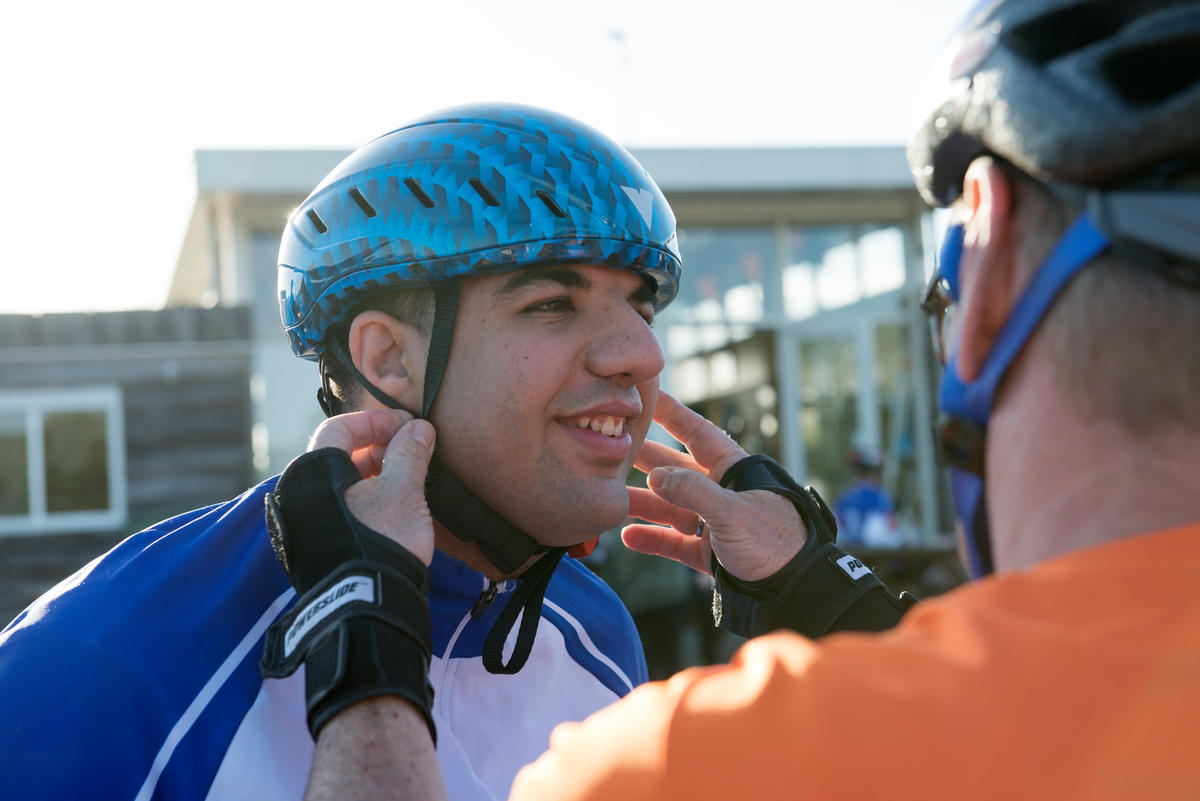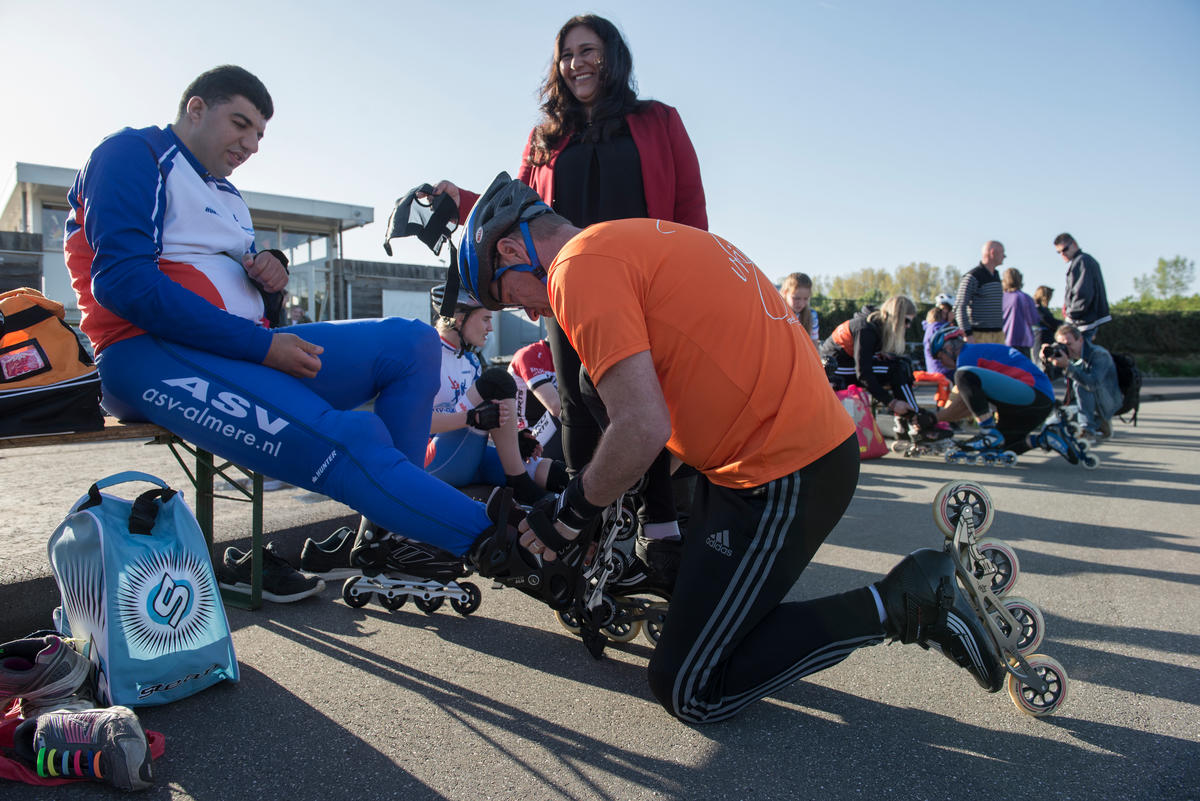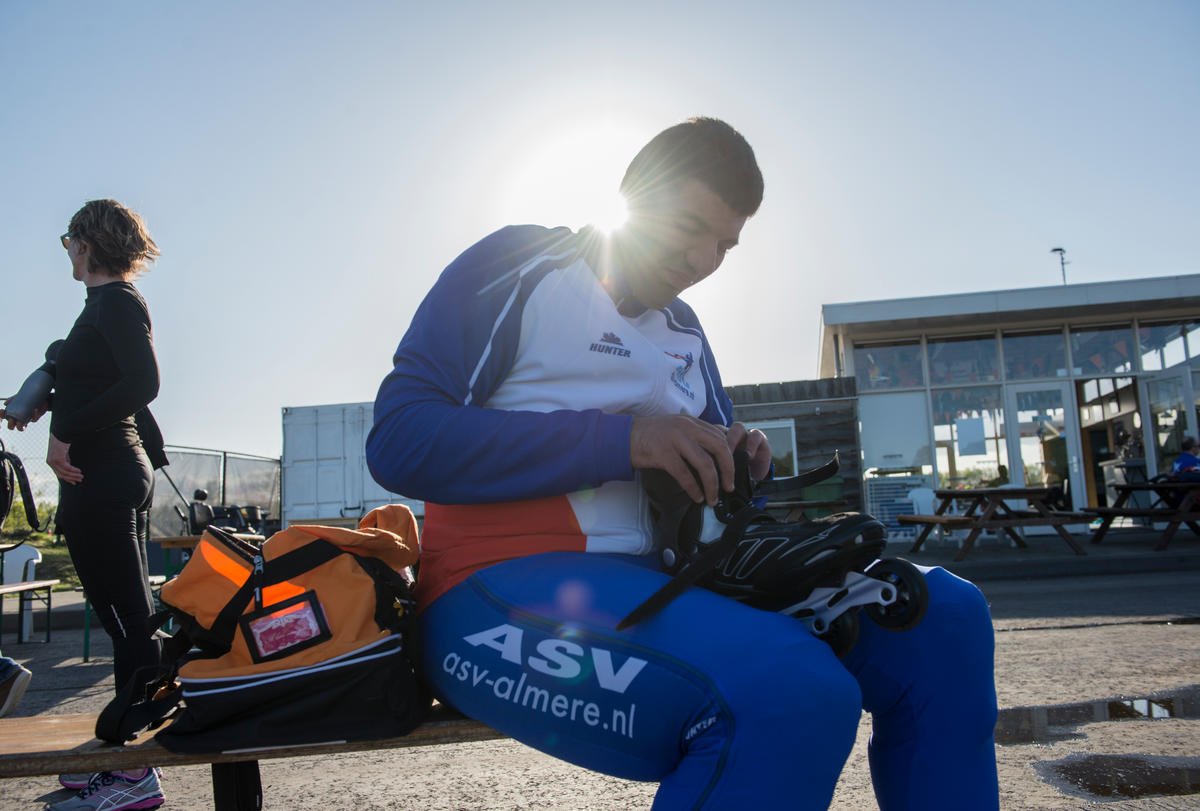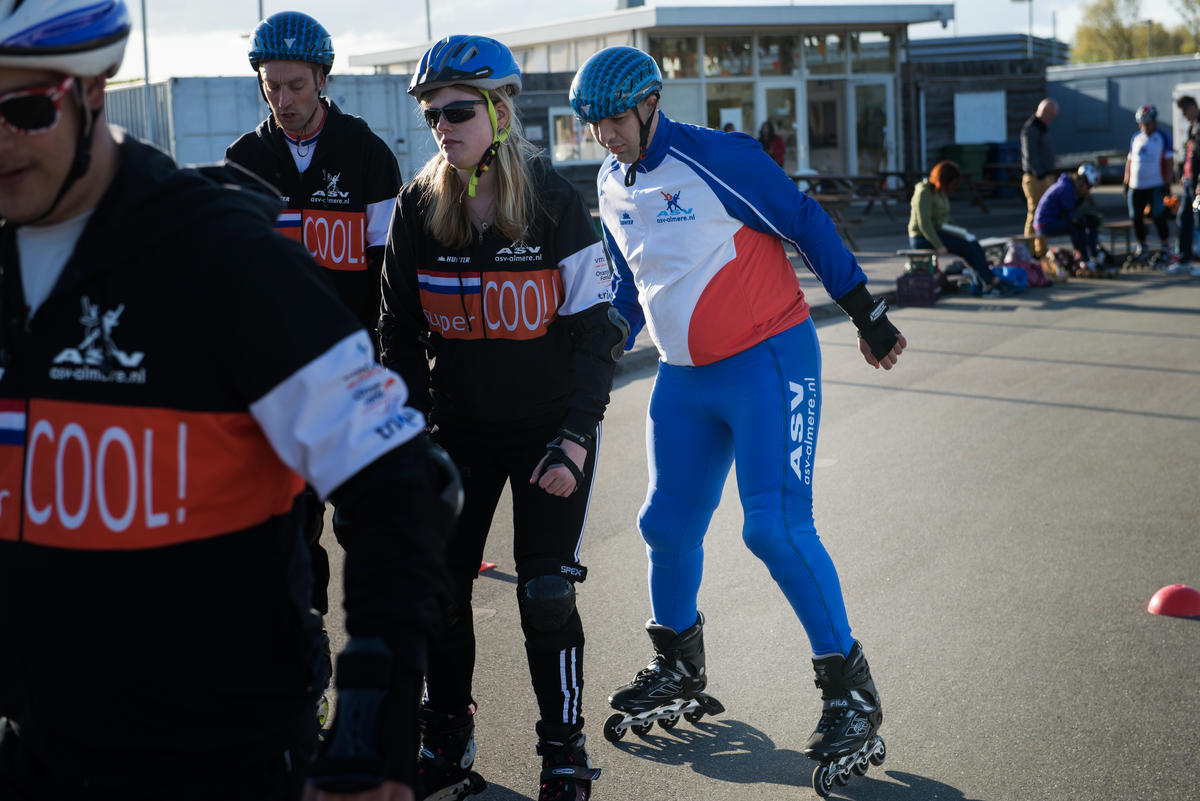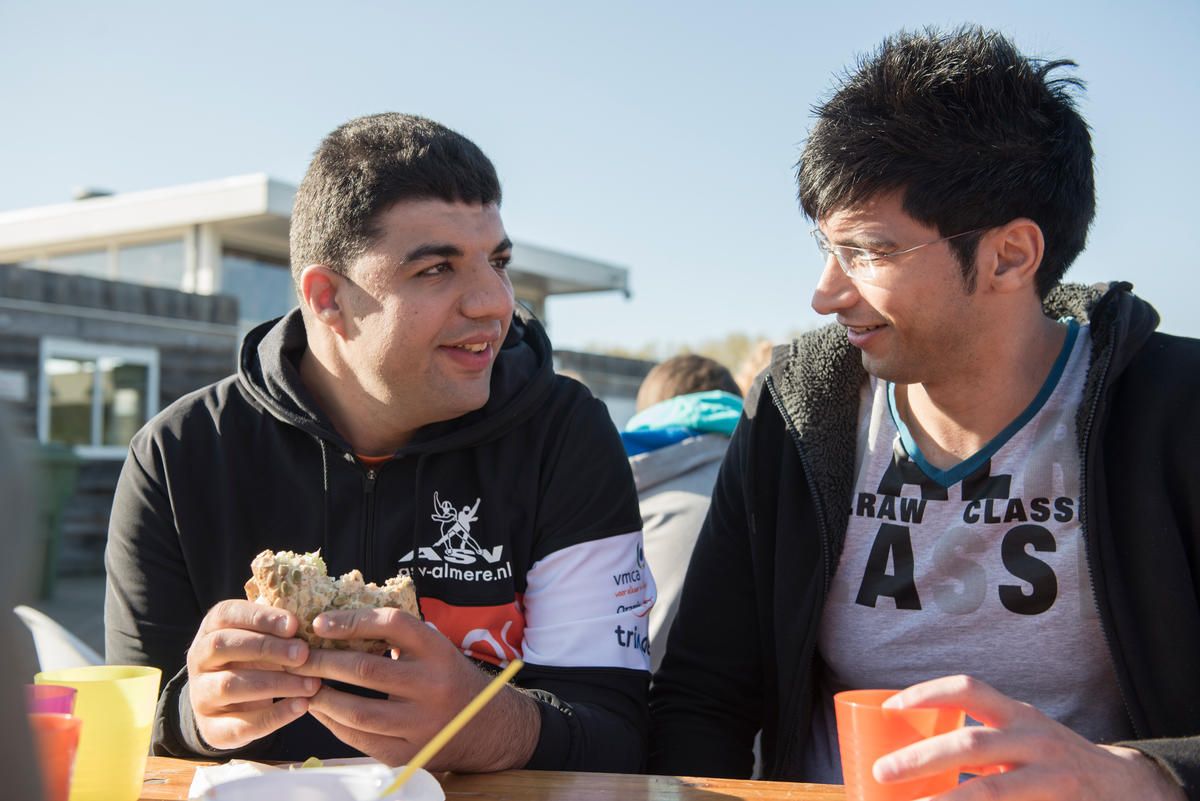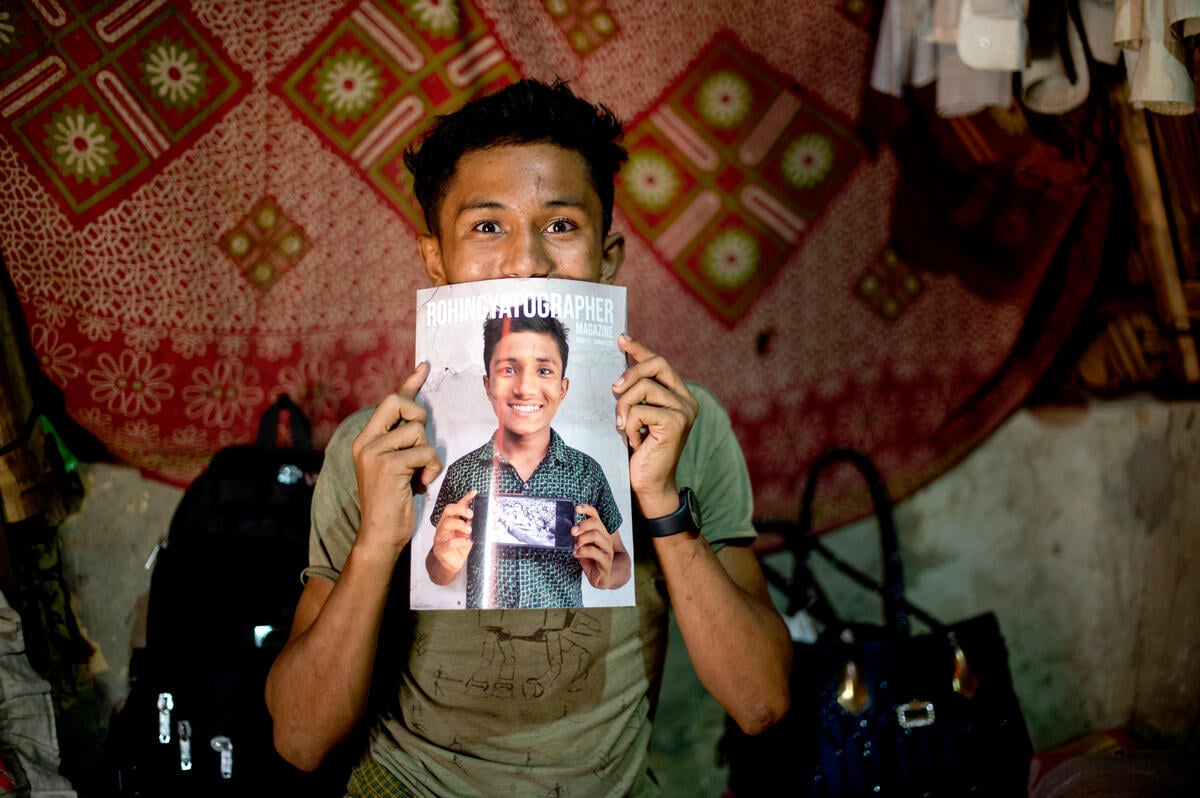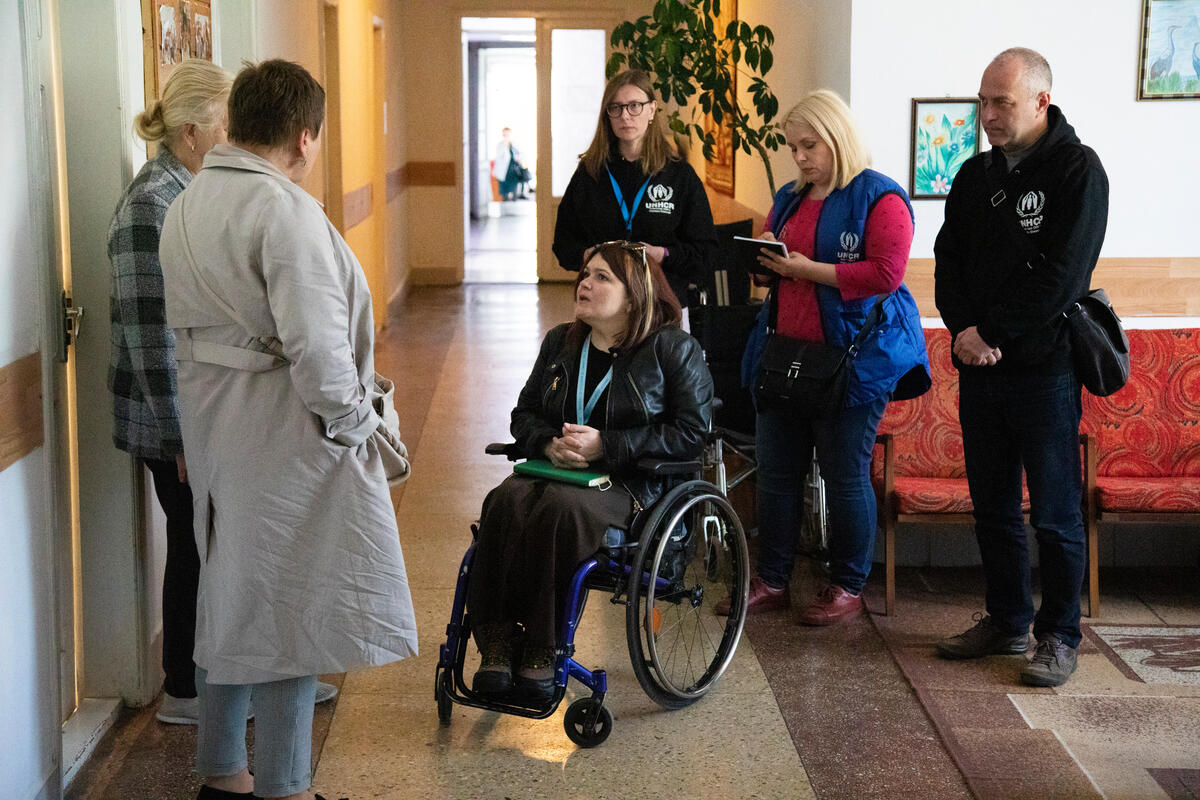Refugee with learning difficulties finds feet in inline skating

Refugee with learning difficulties finds feet in inline skating
Refugee athlete Mina Bahgat is nervously trying out a new pair of inline skates. Sitting on a bench at the side of the rink, he fusses with the strap of his helmet and adjusts his knee pads, worried that he might fall over.
His mother, Maria, bends down and fastens the clips on his skates securely. “You can do it, Mina,” she says, patting him on the knee. Reassured, he skates off to the centre of the track, where the practice session is about to begin.
Mina, 26, who won two bronze medals in the short-track ice speed skating event at the 2017 Special Olympics World Winter Games in Austria, has learning difficulties as a result of injuries he suffered at birth.
Every Thursday evening in Almere, 30 minutes’ drive from Amsterdam, he meets local youths, some with disabilities, some without, for an evening of sports, friendship and activities.
Before arriving in the Netherlands in 2009, life for Mina, his mother Maria, and brother Michael in the Middle East was not easy. The Christian family lived in fear of religious violence and, at school, Mina was bullied for being different.
“At some point, it got really bad,” says Maria. “The teachers at school would make fun of him, they would beat him up. And they encouraged other students to bully him as well.” Things were so bad that Mina refused to leave his home for 19 years.
In Almere, Mina found a welcome in the non-profit organization Super COOL!, which gives young people with intellectual and developmental disabilities the opportunity to live their lives as fully as possible.
Super COOL! promotes social inclusion through sports, in which players with and without intellectual disabilities take part in mixed teams. Through the organization, Mina discovered his love of inline skating and many other sports.
The youths are supported by a group of 30 volunteers, composed of local community members, refugees and asylum seekers.
Amin, an asylum seeker from Iran, is a Super COOL! volunteer. Since arriving in the Netherlands in 2014, he has been waiting for his asylum request to be processed and, meanwhile, is not allowed to work or attend school. The organization has provided him with a path to social inclusion.
"It is beautiful to see people with and without disability train together."
“Volunteering with Super COOL! was the only way for me to meet people, to learn Dutch and to integrate into the local society. It is my way of giving back to the community who took me in,” he says in Dutch to his volunteer peers, who translate into English.
Other refugee volunteers are from Syria and Afghanistan.
“It is beautiful to see a community where people with and without disability, refugees and locals, train together,” says Anton Spaan, founder of Super COOL!. “Through sports, they forget their differences. We have seen them grow from being introverted and dependent, to now having the confidence to lead their own lives, free of barriers, as a team.”

Maria agrees. “Before he started coming here, Mina was completely dependent on me. Staying indoors for so long meant that he was overweight and had very little control of his motor functions”.
Asked about her son’s transformation, Maria says: “He started skating around the living room table at home. His will and determination is something I hadn’t seen before. His transformation has transformed the family.”
Mina adds with a smile: “Thursdays are the highlight of my week! I meet my friends and do lots of different sports.”
"When I heard the cheers... I thought, ‘I belong’."
This week, the group of 20 athletes are practising inline skating. Mina won two bronze medals in 2017 when he was part of a team of Super COOL! athletes that qualified for the Special Olympics World Winter Games in Graz, Austria.
The Special Olympics are the world's largest sports organization for children and adults with intellectual disabilities and the organization is recognized by the International Olympic Committee. However, unlike the Paralympic Games, the Special Olympics are not held in conjunction with the Olympics.
“Special Olympics gave me a new home,” said Mina. “When I heard the cheers in the stadium, I thought, ‘People want me here. I belong’.
“Now, my dream is to compete in the Olympics!”
Every year on 3 December 2017, the International Day of Persons with Disabilities, UNHCR, the UN Refugee Agency, marked the achievements and contributions of people with disabilities worldwide.
Among the 68.5 million people displaced around the world, 7.7 million live with a disability, with about half a million living with an intellectual disability.
“People with disabilities can be powerful agents of change and can help foster more open, inclusive societies in which diversity is celebrated and welcomed,” said UN High Commissioner for Refugees Filippo Grandi in a video message.
UNHCR’s Assistant High Commissioner for Protection, Volker Türk, committed UNHCR to specific steps to tackle stigma and discrimination and to better involve and consult with people living with disabilities when planning operations and activities at the Global Disability Summit in London in July 2018.
"Ensuring the protection and wellbeing of those with disabilities in an inclusive and comprehensive way is timely and of critical importance,” Türk told the conference.


